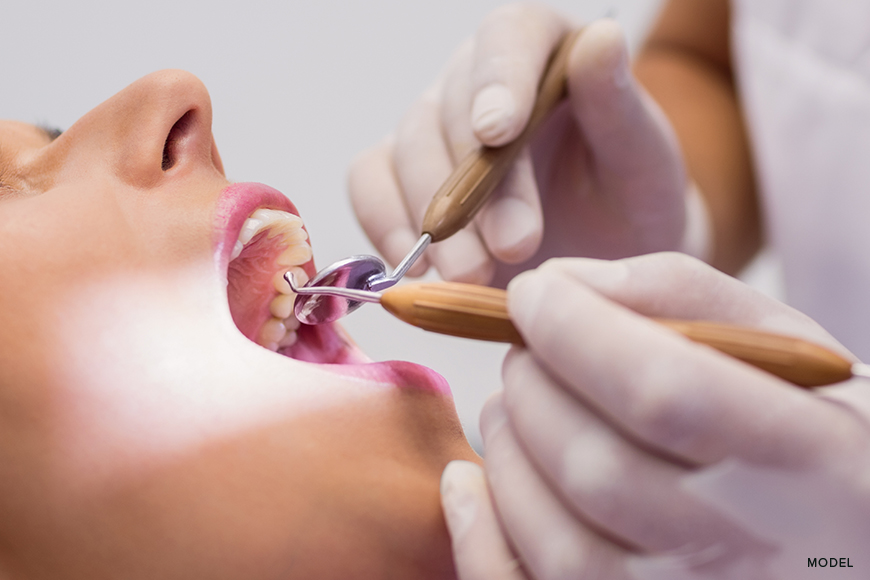Wisdom teeth removal is a common dental procedure that can alleviate pain and prevent dental issues in the future, but it does come with the unwanted side effect of swelling which could be uncomfortable, or worse – painful. Here are several strategies you can use on how to reduce swelling after wisdom teeth removal.
Understanding Wisdom Teeth Removal
The procedure is done by an oral surgeon with an expertise in surgery by making an incision in the gum tissue, removing any bone that blocks access to the tooth, and then extracting the tooth. Afterward, the incision is stitched up, and the recovery process begins. Swelling is normal and part of the procedure, but there are ways we can share on how to reduce swelling after wisdom teeth removal.
Tips on How to Reduce Swelling after Wisdom Teeth Removal
Swelling is a natural response of the body that occurs as part of the healing process and can vary in intensity from person to person. While some degree of swelling is normal and expected, excessive swelling can be uncomfortable and may delay the recovery process. Here are some effective tips to help reduce swelling after wisdom teeth removal:
- Apply Cold Compresses.
Applying a cold compress to the swollen area can help constrict blood vessels and reduce inflammation. Place an ice pack wrapped in a thin cloth on the outside of your cheek for 15-20 minutes at a time, with breaks in between. Do this during the first 24-48 hours after surgery. - Keep Your Head Elevated.
Elevating your head while resting can prevent excessive blood flow to the surgical site, which can reduce swelling. Use extra pillows to prop yourself up while sleeping or reclining. - Take Prescribed Medications.
Your dentist or oral surgeon may prescribe medications, including pain relievers and anti-inflammatory drugs. Take these as directed to manage pain and reduce swelling effectively. - Stay Hydrated.
Drinking plenty of water is essential for the healing process. It helps flush out toxins from your body and promotes overall well-being. - Follow a Soft Diet.
Stick to a soft diet consisting of foods like yogurt, pudding, applesauce, and mashed potatoes for the first few days after surgery. Avoid hard, crunchy, or spicy foods that can irritate the surgical site. - Avoid Smoking and Alcohol.
Smoking and alcohol consumption can hinder the healing process and increase the risk of complications. It’s crucial to abstain from these habits during your recovery period. - Maintain Good Oral Hygiene.
While you should avoid brushing near the surgical site for the first few days, keeping your mouth clean is essential. Use a saltwater rinse as directed by your dentist to prevent infection. - Rest and Relax.
Give your body the time it needs to heal. Avoid strenuous activities and get plenty of rest during the initial days after surgery. - Use Over-the-Counter Products.
Certain over-the-counter products, such as arnica gel, may help reduce swelling and bruising. Consult with your dentist before using any of these products.
Madison Dentistry & Implant Center is dedicated to providing quality dental care, including wisdom teeth removal. Their experienced team of oral surgeons ensures a safe and comfortable experience for patients undergoing this procedure.
While swelling is a common side effect of wisdom tooth removal, following these tips can help minimize discomfort and promote a smoother recovery. Remember to consult with us today for personalized advice and guidance on how to reduce swelling after wisdom teeth removal.
FAQs
- How long does swelling typically last after wisdom tooth removal? Swelling can persist for 2-3 days after the procedure but should gradually improve after that.
- Is it normal to experience pain along with swelling after wisdom tooth removal? Yes, some pain and discomfort are normal, but your dentist will prescribe pain medications to manage it.
- Can I use a heating pad to reduce swelling? It’s best to use cold compresses during the initial 24-48 hours. After that, you can consider switching to a warm compress for comfort.
- When can I resume my regular diet after wisdom tooth removal? You can gradually reintroduce solid food after the first few days, as advised by your dentist.
- Are there any signs of complications I should watch for during recovery? If you experience severe pain, excessive bleeding, or signs of infection (such as fever), contact your dentist immediately.




